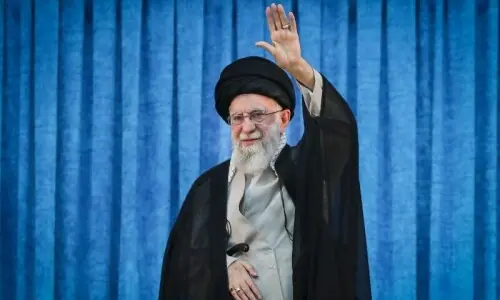THE European Union Parliament has partially redesigned its Generalised System of Preferences Plus scheme and amended its rules to increase the threshold of imports from countries applying for trade concessions under this arrangement from one to two per cent. This will allow Pakistan, along with Ukraine and the Philippines, to be eligible and apply for zero-duty on its exports from 2014. While the modified GSP-plus rules will improve Pakistan’s chances to get trade concessions from the 27-nation bloc, the country will not qualify for the scheme automatically. There is still a big ‘if’ attached to its successful entry into the club of countries enjoying trade incentives offered by the EU. Islamabad will have to implement 27 international conventions on human and labour rights, environment and good governance before our exporters are able to take advantage of the opportunity and increase their exports to the EU.
Given our past record on these issues the government will have to make serious efforts to improve its performance to demonstrate to the EU its commitment to “core universal values of human and labour rights, environment and governance”. Even after its entry into the GSP-plus club, Pakistan will have to continually show improvement in its performance on the implementation of these conventions. The amended GSP-plus rules provide for an “effective monitoring and evaluating implementation of the relevant international conventions”, which requires the beneficiary countries to provide positive and regular proof that they are indeed implementing them. Failure to do so will result in temporary or permanent ouster from the arrangement, which is the key EU trade instrument to promote human rights, reduce poverty and promote sustainable development and governance in beneficiary countries. Thus, entry into the scheme will bring more responsibility along with economic benefits.
While it is important for Islamabad to move ahead to cash in on the opportunity, it should also press the EU to implement the temporary, limited duty waiver for 75 Pakistani textile and other exports announced to help the country recover from floods losses of 2010. In spite of a WTO waiver to the package, its final approval by the EU remains uncertain. The implementation of these temporary incentives is crucial to help our industry, especially the textile and clothing exporters, prepare itself for enhanced trade discounts under the GSP-plus arrangement. Moreover, it will also push the industry to make investments to expand capacity and improve the quality of products. With the world economic situation too dismal to expect the much-needed foreign investors to come to Pakistan, the EU trade incentives must revive domestic investment.




























